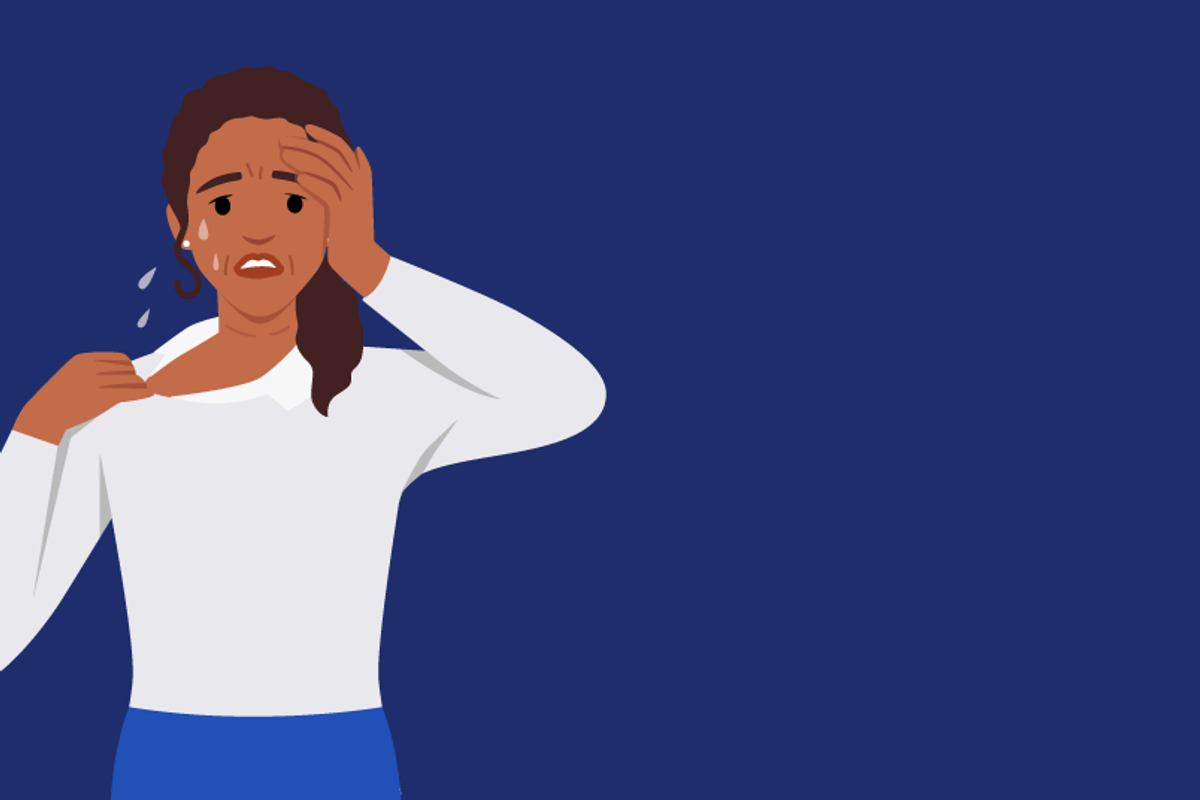What is VMS?
Vasomotor symptoms (VMS) — hot flashes and night sweats — are common during perimenopause and menopause.
For many women, hot flashes and night sweats aren’t just annoying — they’re a serious health problem.
VMS can go on for years
Some women and people assigned female at birth (AFAB) experience VMS for more than a decade.
7 = Average number of years
4.75 = Average number of hot flashes a day
3 = Average number of night sweats per night
Race matters
Women of color:
Are more likely to report symptoms of VMS
Experience VMS for longer compared to white women
VMS and sleep
Night sweats and hot flashes can disrupt sleep and cause:
Poor sleep
Early morning awakenings
Insomnia
Daytime tiredness
Over time, sleep problems can reduce your quality of life and increase the risk for serious health conditions, such as:
DYK?
½ of all postmenopausal women have poor sleep that could benefit from treatment.
VMS increases the risk for many serious health conditions
It’s not just you
As many as 8 out of 10 women in midlife experience VMS …
… But only 1 in 4 get treatment
Know your treatment options
- Hormone therapy
-
Non-hormonal therapy specifically for VMS
-
Prescription medications (e.g., some antidepressants, gabapentin, oxybutynin)
-
Over-the-counter and alternative medications
When it comes to supplements, should you?
Over-the counter supplements aren’t regulated by the FDA and have not been heavily studied. Be sure to ask your healthcare provider before starting supplements.
Don’t sweat it out
VMS can have serious consequences. Talk to your healthcare provider about treatment options.
This educational resource was created with support from Astellas, a HealthyWomen Corporate Advisory Council member.








